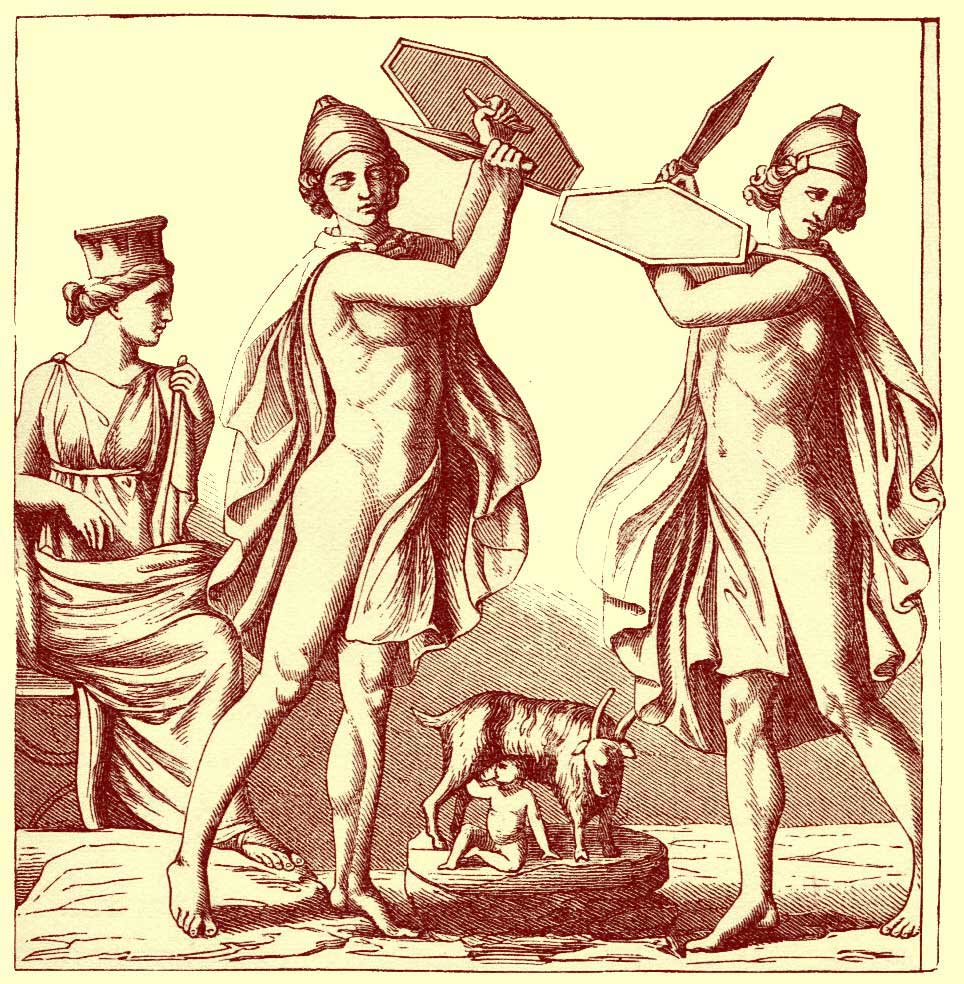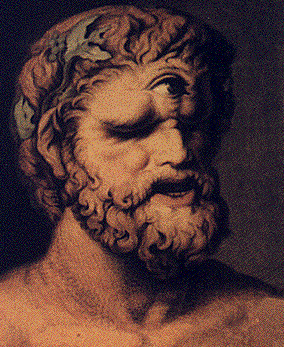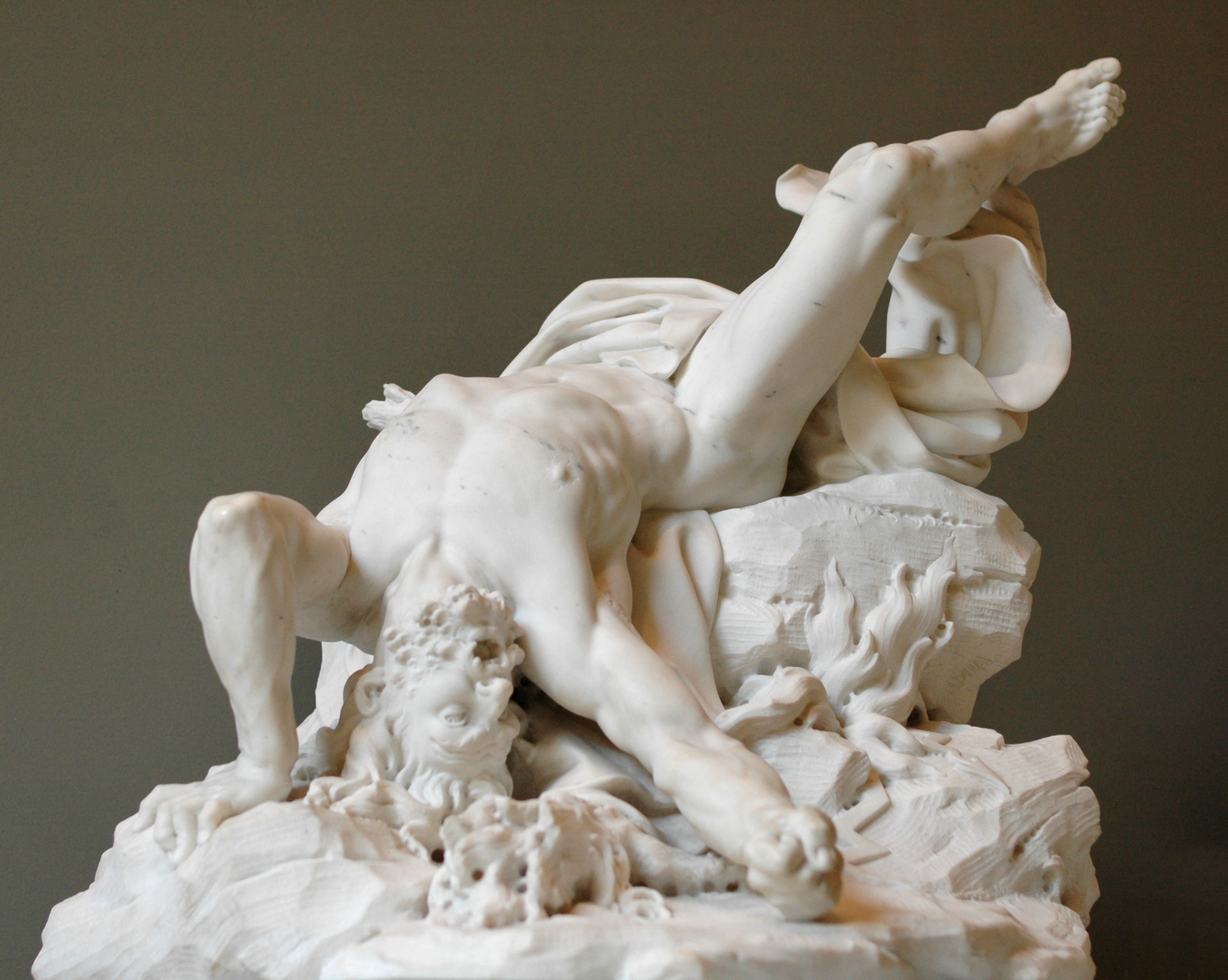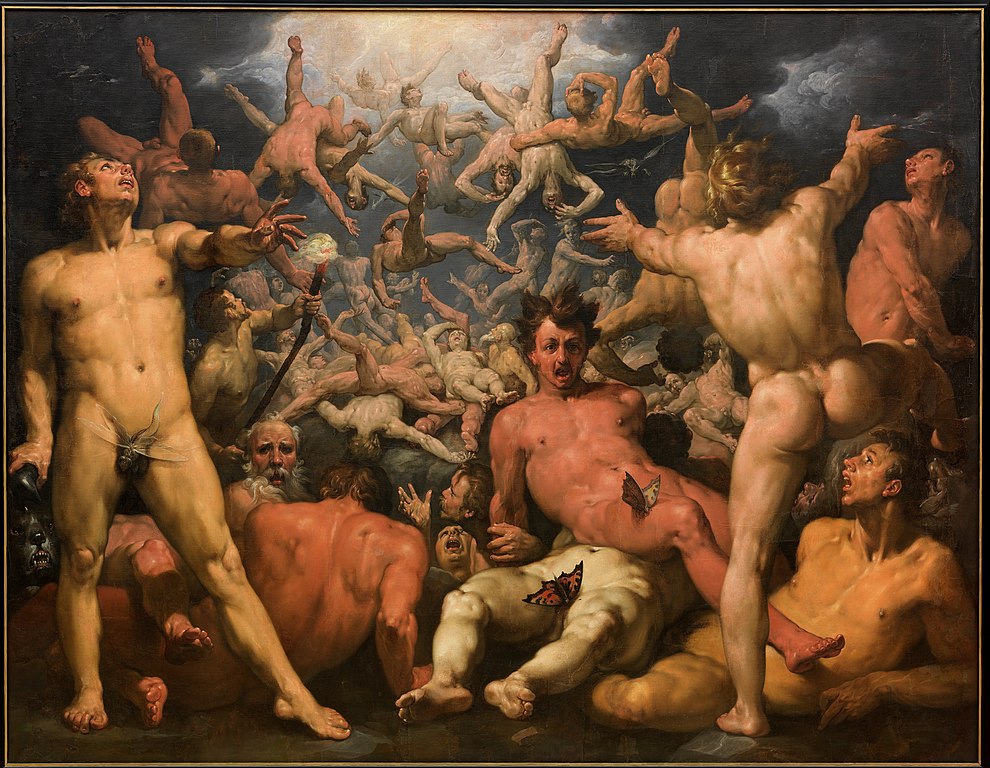Unit 1: Why Study Greek Mythology?

Before You Read
Discuss the question with a classmate.
- Look at the title. Before we continue reading the story, why do you think the Titans are at war?
Vocabulary in Context
These sentences are from the next reading. As much as possible, you should guess vocabulary while you read and avoid using the dictionary unless you feel you don’t understand the material. Use the context of the topic and the sentence to guess the meaning of the words in bold.
- Zeus, the eldest surviving child, was a very fine, strong child.
- It became known as the Horn of Amalthea, or the Cornucopia, which is a symbol of abundance often seen at harvest time.
- Zeus grew up on Crete and in disguise became the cupbearer to Cronos.
- As the Titan of wisdom and deep thought, Metis gave Zeus an intriguing idea–poisoning his father so that he would vomit Zeus’ siblings.
- She formulated a drink for Zeus to give to Cronos.
- Soon after he did, Cronos expelled his children one by one from his gaping mouth.
- Zeus then waged a war against his father with his disgorged brothers and sisters as allies: Hestia, Demeter, Hera, Hades, and Poseidon.
- The Hecatonchires launched stones, and the Cyclopes forged for Zeus his iconic thunder and lightning, the trident for Poseidon, and Hade’s helm, a cap of invisibility.
- Cronos did some appalling deeds in order to keep a hold of his power, but great leaders do not hurt others to gain power.
- He too faced a prophecy that he would be overthrown by his youngest child–the same prophecy Cronos received.
Part 2: The War of the Titans
Adapted from Gods and Heroes by R.E. Francillon $\ccpd$ and material from the Wikipedia article “Titanomachy”, $\ccbysa$

Zeus, the eldest surviving child, was a very fine, strong child. He made such a noise with his crying that his mother Rhea was afraid Cronos would hear him. So she sent him away to the island of Crete where he was brought up on goat’s milk from Amalthea. One day, baby Zeus was playing with Amalthea and accidentally broke off her one of her magical horns, and out came hundreds of fruits and vegetables. It became known as the Horn of Amalthea, or the Cornucopia, which is a symbol of abundance often seen at harvest time. When Amalthea died, Zeus used her skin to create the Aegis, his shield.
When baby Zeus cried, Rhea ordered his nurses to make all the noise they could with drums, trumpets, and cymbals all day and all night long, so that nobody could hear him and so find out that he was alive. Zeus grew up on Crete and in disguise became the cupbearer to Cronos. Zeus and his mother were waiting patiently for the right time to seek revenge.
At this time, Zeus met his first wife Metis, a second-generation Titaness. As the Titan of wisdom and deep thought, Metis gave Zeus an intriguing idea–poisoning his father so that he would vomit Zeus’ siblings. She formulated a drink for Zeus to give to Cronos. Soon after he did, Cronos expelled his children one by one from his gaping mouth. Now that he had his siblings on his side, Zeus led them in rebellion against the Titans. The time came to war with Cronos.

Zeus then waged a war against his father with his disgorged brothers and sisters as allies: Hestia, Demeter, Hera, Hades, and Poseidon. At first, Zeus and his allies were struggling, and it started to look like all hope was lost. They needed more allies. Again, Metis reminded him that the Hecatonchires and the Cyclopes remained underground after Cronos betrayed them and imprisoned them. Thus, Zeus released the Hecatonchires and the Cyclopes from the earth, and they allied with him as well, hoping also to seek revenge against Cronos. The Hecatonchires launched stones, and the Cyclopes forged for Zeus his iconic thunder and lightning, the trident for Poseidon, and Hade’s helm, a cap of invisibility.

Fighting on the other side allied with Cronos were the other Titans with the important exception of Themis, the Titaness of justice, and her son Prometheus, who allied with Zeus. Atlas was an important leader on the side of Cronos. The war lasted ten years, but eventually Zeus and the other Olympians won. The Titans were imprisoned in Tartarus, the ancient Greek equivalent of hell, and the Hecatonchires were made their guards. Atlas was given the special punishment of holding up the sky. Cronos may have been a Titan, but he could not subvert fate.
Following their final victory, the three brothers divided the world among themselves: Zeus was given domain over the sky and the air, and was recognized as king of the gods, establishing his home on Mount Olympus. Poseidon was given the sea and all the waters, whereas Hades was given the Underworld, the realm of the dead.

The Roman name for Cronos is Saturn. The Greek name for Cronos means “Time”; and Cronos is called the god of Time, who swallows up all things and creatures. In pictures Cronos is always made an old man, because Time is old; and he carries his scythe, because Time mows everything away, just as a mower does the grass; or like “The Reaper whose name is Death.” Only Death is kinder than Cronos or Time.
Some view the story of the Titanomachy as the beginning of democratic ideals in ancient Greece, where the little people can band together to defeat those who have much more power than they have. Cronos did some appalling deeds in order to keep a hold of his power, but great leaders do not hurt others to gain power. That is where the everyday person must come and do what is right. Some view the War of the Titans as the inevitable transitioning of power from the older generation to the next.
Zeus, however, was not always a great leader. In fact, he too faced a prophecy that he would be overthrown by his youngest child–the same prophecy Cronos received. So when he learned that his new wife Metis was pregnant, he turned her into a fly and swallowed her so that the child would not be born…
CEFR Level: CEF Level B2
Comprehension Questions
Answer the questions below according to the reading using your own words. Make a note of where you found the answer in your reading.
- What was the name of the baby that Rhea saved?
- Who is Amalthea?
- What role did Metis play in the story?
- Which two Titans were on the side of Zeus?
- Who is “father time” and why is this his name?
- What two groups did Zeus recruit as allies?
- How did the two groups above help Zeus and his siblings?
- How were the Titans punished in the end, including Atlas?
Vocabulary from the Stories
Many words and phrases in English come from the characters in Greek mythology. Fill in the following blanks with their corresponding god or goddess and definition. Discuss with a partner how the vocabulary is related to the god or goddess that the word comes from.
| Related Greek / Roman god / other |
English vocabulary and definition |
Relationship between vocabulary and story |
| Amaltheia | cornucopia | |
| X | copious | |
| Zeus’ shield | under the aegis of | |
| Atlas | atlas | |
| X | carry the weight of the world on one’s shoulders | |
| Cronos | chronological | |
| X | chronicle (noun / verb) | |
| X | synchronize | |
| saturnine |
Critical Thinking Questions
Below are critical thinking questions. Critical thinking means thinking more deeply about a topic and connecting it with old and new knowledge that you have. Often teachers will ask you for your opinion. These types of questions do not have a right or wrong answer, but you should support your answer with information from the reading. Discuss these questions with your classmates to see what their point of view is.
- In your culture, is there a similar figure to “father time”? Explain.
- Which of these characters is the most interesting to you? Explain why.
- Which of these characters do you dislike the most, and why?
- So far, how would you describe Zeus’ personality?
CEFR Level: CEF Level B2
